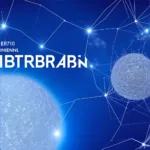
Ethereum validators have experienced a significant reduction in the queue, with only 598 validators waiting to join the network as of Thursday. This is a substantial decrease from the peak of over 96,000 in early June. The wait time for new validators has also dropped from 45 days to less than five hours, thanks to the completion of Ethereum’s transition to a fully-functioning proof-of-stake network in April.
Role of Validators in Ethereum’s Proof-of-Stake Network
Validators play a crucial part in maintaining Ethereum’s proof-of-stake blockchain by verifying transactions and staking ETH in exchange for rewards. The recent Shapella upgrade allowed for the withdrawal of staked ETH, eliminating a significant risk for investors. This upgrade led to a surge in inflows into the blockchain’s staking mechanism, but the initial fervor has started to cool.
Decrease in Staking Rewards
The staking rewards for Ethereum validators have dropped to nearly 3.5%, down from 5%-6% earlier this year, due to tepid network activity and an increasing number of stakers. Ethereum’s staking ratio has grown over 22% since last April, but still lags behind other popular proof-of-stake networks like Solana, Cardano, and Avalanche.
Comparing Ethereum to Other Proof-of-Stake Networks
Despite the decrease in wait times and slowdown in staked ETH growth, Ethereum’s more distributed shareholder base and use as a network resource contribute to its lower staking ratio compared to other networks. Solana, Cardano, and Avalanche have gained popularity due to their higher staking ratios and faster transaction speeds, which has led to increased interest from investors and developers.
Solana
Solana boasts a high staking ratio and rapid transaction speeds, making it an attractive option for investors and developers. The network’s native token, SOL, has experienced significant growth in value and market capitalization, further cementing its position as a contender in the proof-of-stake space.
Cardano
Cardano is another popular proof-of-stake network, offering a more sustainable and eco-friendly alternative to Ethereum. With its recent Alonzo upgrade, Cardano has introduced smart contract functionality, making it a more competitive option for developers and investors.
Avalanche
Avalanche is a relatively new player in the proof-of-stake arena, offering a unique consensus mechanism that allows for fast and secure transactions. Its native token, AVAX, has seen rapid growth in value, making it an attractive option for investors looking to diversify their portfolios.
Future Outlook for Ethereum Validators
As Ethereum continues to evolve and improve its network, the role of validators will remain essential in maintaining the security and integrity of the blockchain. The ongoing transition to Ethereum 2.0, which aims to address scalability and energy consumption issues, is expected to attract more validators and further enhance the network’s capabilities.
In conclusion, Ethereum validators have seen a significant decrease in wait times and a slowdown in staked ETH growth. However, Ethereum’s more distributed shareholder base and use as a network resource contribute to its lower staking ratio compared to other networks like Solana, Cardano, and Avalanche. As the Ethereum network continues to grow and develop, validators will play a crucial role in ensuring its success and stability.




